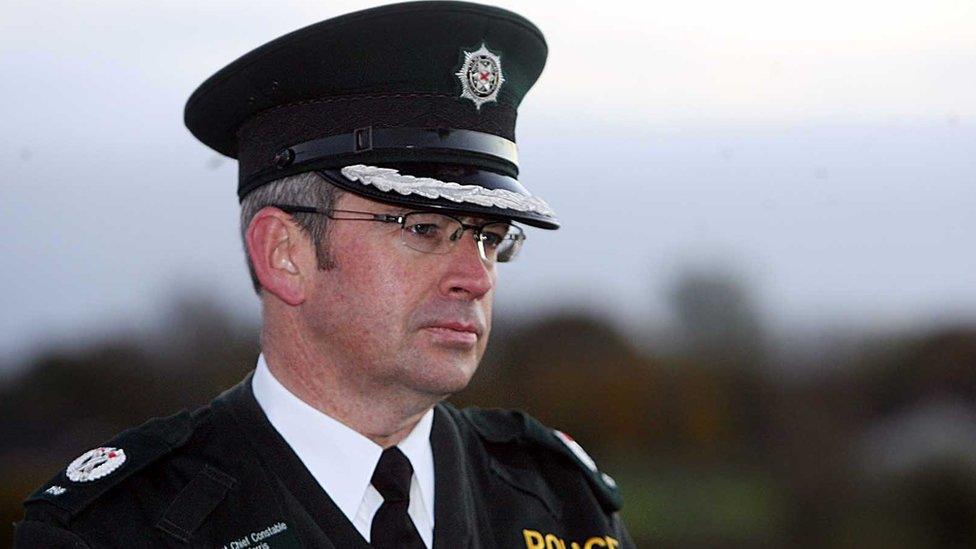No legacy plan published 'without political agreement'
- Published
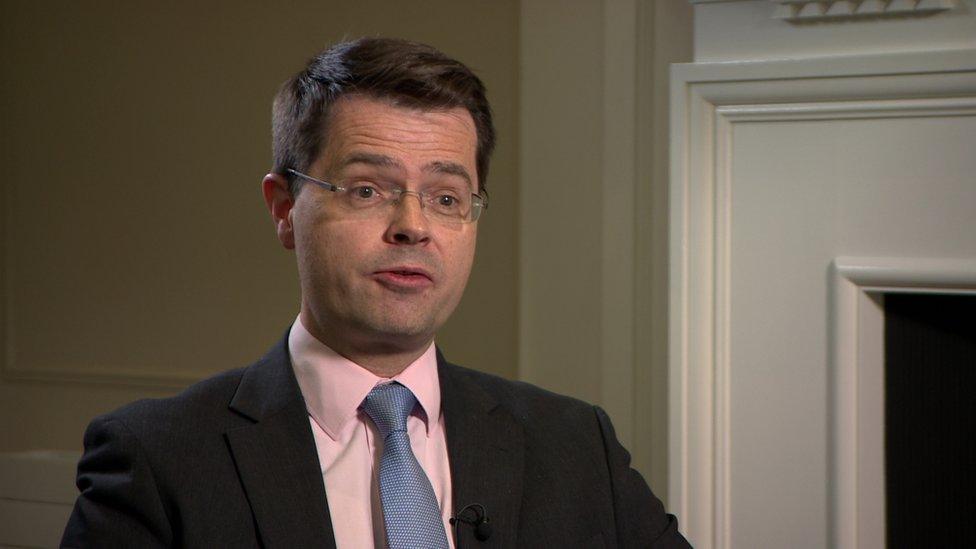
James Brokenshire said Stormont's parties only have one chance to reach a deal on legacy issues
Plans to deal with the legacy of the Troubles will not be made public unless there is political agreement.
The government had indicated it would publish proposals for consultation, but is now indicating that unless it, the DUP and Sinn Féin agree, there is no point.
Secretary of State James Brokenshire told the BBC he wants "broad political consensus" before any publication.
There is no sign that an agreement is close.
Two years ago the Stormont House Agreement set out a plan for dealing with what have become known as legacy cases.
New bodies were to be established to deal with the thousands of killings.
That still hasn't happened.
The Northern Ireland Secretary has said several times that he regards an agreement on new structures to deal with the legacy of the Troubles as a priority.
He has also said he wants to move to "a public phase", to ask victims of the Troubles, their families and members of the public to respond to proposals for dealing with the past.
'One chance'
The public consultation had been expected to be launched last month, but now appears to have been postponed indefinitely.
"I think it's important that there is that broad political consensus to ensure that when we move to a public phase, we don't suddenly see that hitting an immediate roadblock," Mr Brokenshire said.
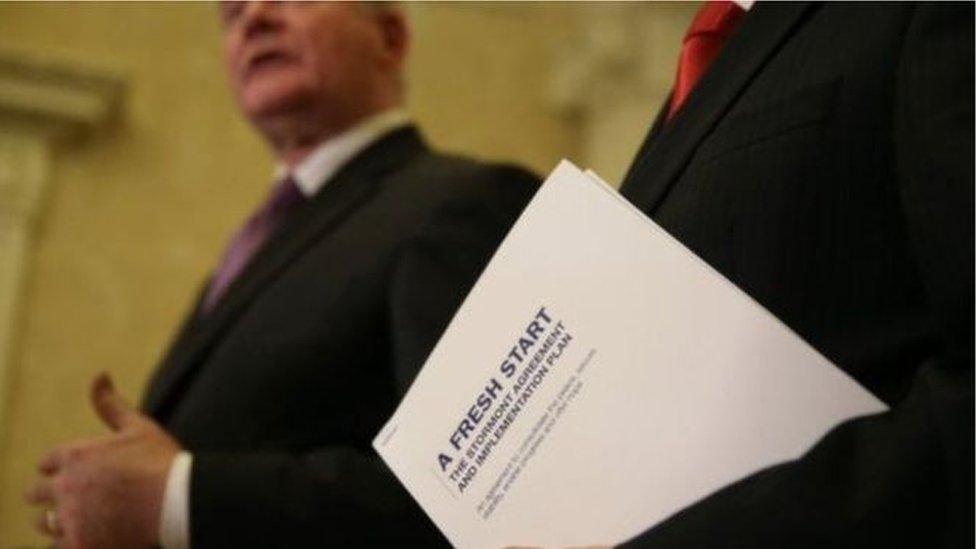
The Fresh Start deal set a deadline for the political parties to progress legacy issues, but it passed last month - without any agreement
"I want to get this right. I think we've got one chance, one shot to get this right, and that's where my focus lies.
"In my duty as secretary of state, I have that duty to come forward with proposals that I have confidence command broad political support in order to have effect.
"No-one will thank me for coming forward with something that simply then would be stopped in its tracks at that first phase."
One of the key obstacles to an agreement on legacy issues is the issue of national security and how sensitive information might be handled.
'National security duties'
Sinn Féin has accused the government of using national security as an excuse to protect former soldiers, police officers and members of the security services from investigation.
Mr Brokenshire disputes that claim.
"I hold my duties very clearly in relation to national security, on protecting the public here in Northern Ireland here and now, and I feel that very keenly," he said.
"National security is used for that purpose. It is not about some sort of mechanism of hiding embarrassment. I'm very clear on that, in the way it is used."
The DUP and Sinn Féin insist that reaching an agreement on how to deal with the past is also a priority for them.
Mr Brokenshire and the DUP have said they believe progress is being made and that the outstanding issues can be resolved.
However, there is no indication that an agreement is on the horizon.
The BBC has established that Sinn Féin has met Northern Ireland Office (NIO) officials at least 10 times in recent months to discuss legacy issues.
The DUP has also held a number of meetings with the NIO.
But the two parties and the NIO have only met once collectively to discuss the issue.
- Published5 September 2016
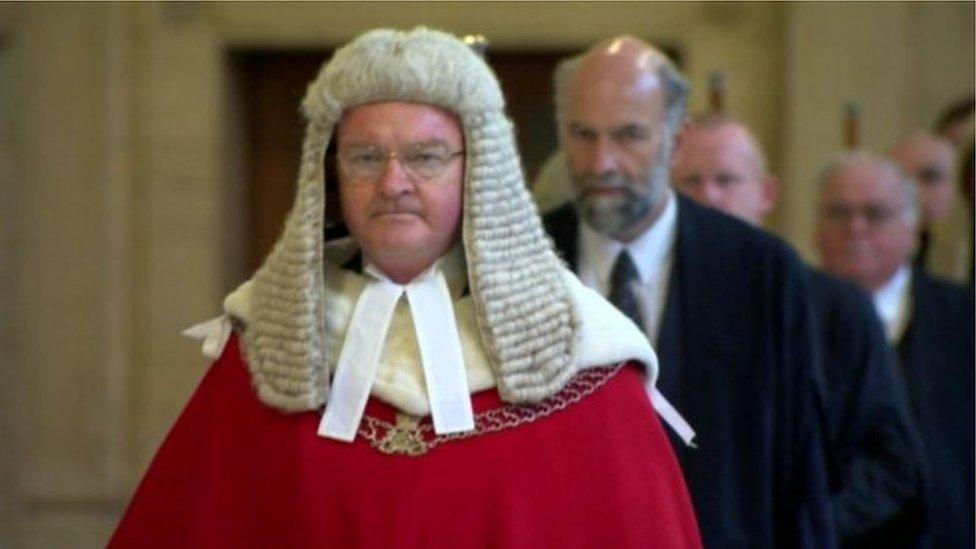
- Published3 May 2016
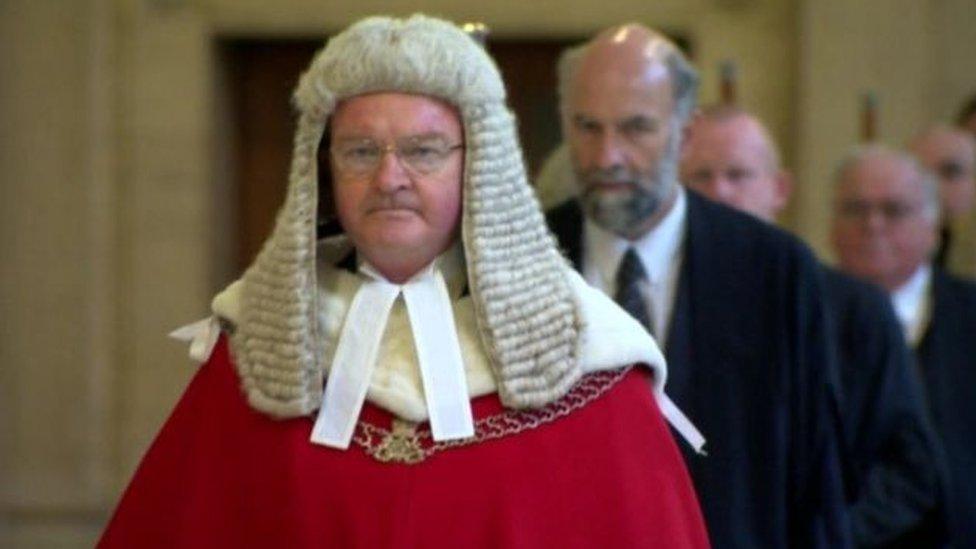
- Published8 December 2015
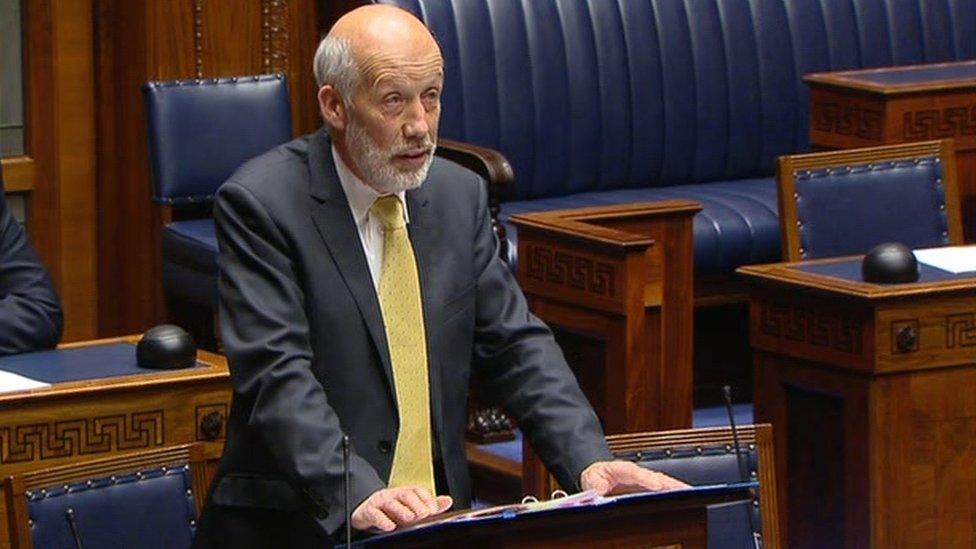
- Published18 November 2015
